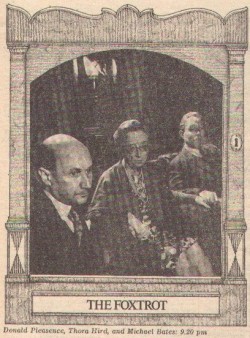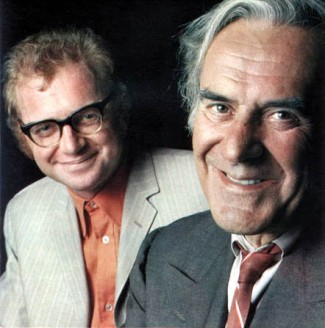by DAVID ROLINSON
Screenplay Writer: Arthur Ellis, Producer: Brenda Reid, Director: Guy Slater
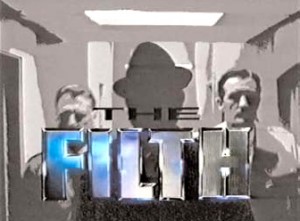
Transporting a character from one era of policing to another, and asking us to consider how both policing and its television representation had changed: these are some of the reasons why Life on Mars (2006-7) and Ashes to Ashes (2008-2010) were rightly acclaimed, but these tactics had previously been attempted in a more ideological way in 1988 by The Black and Blue Lamp. This Screenplay production transported characters from the world of Ealing film The Blue Lamp (1949) to the corrupt, violent world of 1980s policing, here fictionalised as a drama-within-a-drama, The Filth. Whilst Gene Hunt became a popular cultural figure referenced by politicians and media, this play’s view of the police, and of police drama, was so controversial that it has never been repeated or commercially released. Recapped at the start of the play, The Blue Lamp introduces P. C. George Dixon (Jack Warner), the archetypal British policeman, the kind of “bobby on the beat” idealised by successive Home Secretaries. Dixon outlived the film by 26 years (some feat given that the character is killed in the film), appearing in his own series, Dixon of Dock Green (1955-1976), during which time there were marked changes in television drama’s attitudes to the police. The Black and Blue Lamp juxtaposes the world of Dixon with more cynical modern depictions of the police, producing an Ortonesque darkly comic farce in which there isn’t simply a comedy of culture-clash but a deconstruction of the Dixon icon and a witty, political questioning of the relationship between fictional treatments of the police and their role in society.
This essay will focus on ideas raised by the play (“reading” police drama on the terms set by the play, with the inevitable biases of that approach). I gave a more historical account, with a very detailed synopsis, the history of the Screenplay strand including an interview with producer David M. Thompson, previously unpublished production documentation and correspondence with cast and crew such as Ralph Brown and Sean Chapman, in a piece in 2004.1
That 2004 production file was available for many years available at The Mausoleum Club (as a PDF) but, as of 2021, is no longer accessible. As well as that production file, this website essay draws from some of the material produced for two different conference papers, listed at the end of this essay. ↩

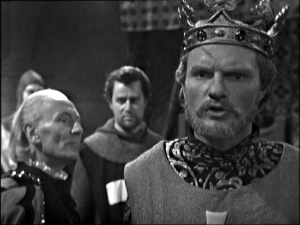
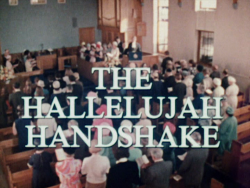 Not until the end of The Hallelujah Handshake do we discover the real identity of its central character, David Williams (played by Tony Calvin).
Not until the end of The Hallelujah Handshake do we discover the real identity of its central character, David Williams (played by Tony Calvin).